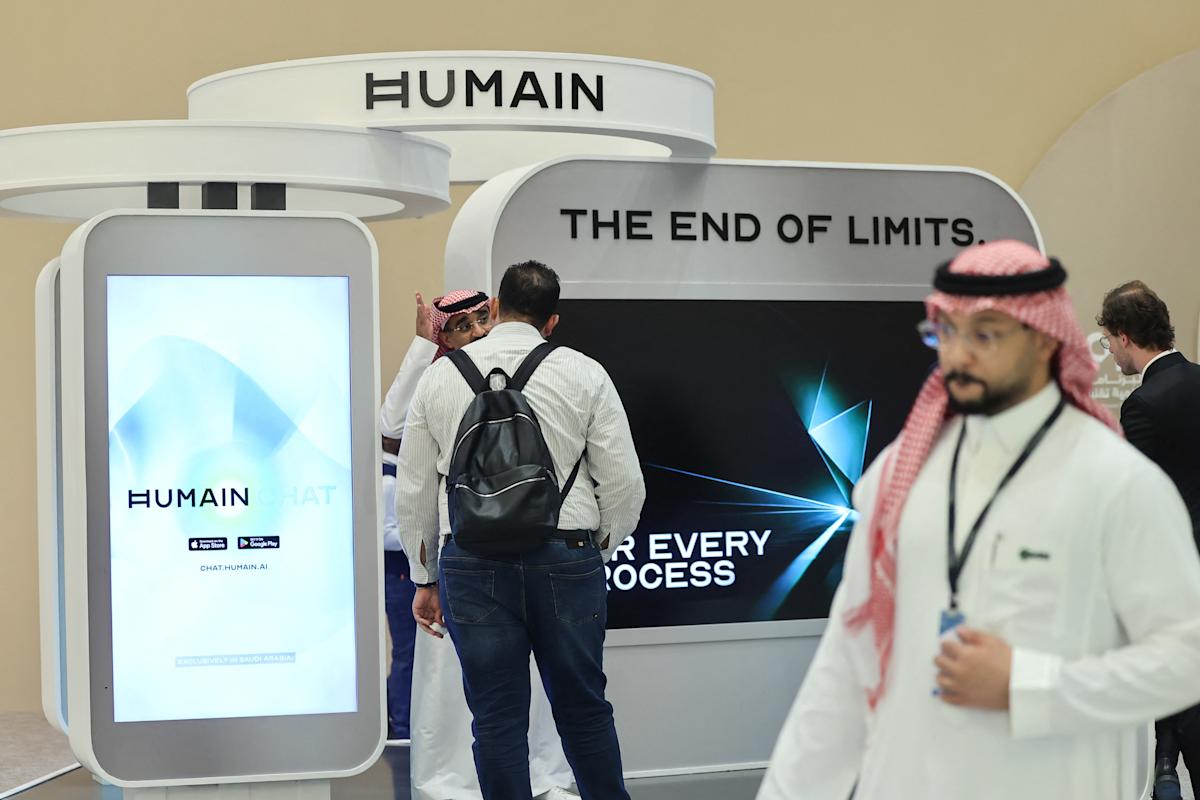US Plans to Approve Sale of Chips to Saudi AI Venture Humain
Guests stand at the booth of Saudi artificial intelligence company Humain during the Future Investment Initiative conference in Riyadh, Saudi Arabia on Oct. 29.
(Bloomberg) — The US plans to greenlight the first sales of advanced artificial intelligence chips to the Saudi Arabian AI firm Humain, people familiar with the matter said, marking a win for the state-backed venture as Saudi Crown Prince Mohammed bin Salman meets with US President Donald Trump.
Most Read from Bloomberg
The approvals are expected as part of a broader AI agreement between Washington and Riyadh, said the people, who asked not to be named discussing a sensitive matter. The accord, which could be finalized as soon as this week, would see the US government look favorably upon a negotiated volume of AI chip export applications for Saudi Arabia, which has needed Washington’s permission for such shipments since 2023, the people said.
“We are working on that,” Trump told reporters in the Oval Office as he met with Crown Prince Mohammed on Tuesday. The deal will involve “certain levels of chips,” the president said. One person with knowledge of the matter said the volume of approvals is expected to be in the tens of thousands of semiconductors, while declining to specify further.
US authorization would mark a victory for some of the world’s largest semiconductor companies, including Nvidia Corp. and Advanced Micro Devices Inc., seeking to supply Middle East markets. Humain Chief Executive Officer Tareq Amin said last month that the company plans to deploy as many as 400,000 AI chips by 2030.
The US Commerce Department’s Bureau of Industry and Security, which oversees semiconductor export controls, declined to comment, as did Humain. Amin told Bloomberg News last month that Humain was waiting for export permits involving chips from Nvidia, AMD, Qualcomm Inc. and California-based chip startup Groq. Nvidia, AMD and Qualcomm declined to comment, while Groq didn’t respond to a request.
US Treasury Secretary Scott Bessent hinted at a chips agreement after Tuesday’s meeting between Trump and the crown prince. “We are going to partner them with some of the biggest US tech companies. And then there is also a Saudi startup that will be getting a smaller supply of chips that can be built on,” Bessent said in a Fox News interview without naming the company or providing other details.
The bilateral deal follows months of negotiations between the US and Saudi Arabia, which has worked to assuage concerns in some corners of Washington that semiconductors sent to the Gulf nation could wind up benefiting China. The US restricted AI chip sales to China in 2022 and followed up the next year with curbs on some 40 countries viewed as possible avenues for Beijing to access restricted hardware, including Saudi Arabia. Trump has kept those curbs in place while also pursuing major Middle East AI deals that would involve large chip sales — a negotiation that, for Saudi Arabia, was aided by the kingdom’s promise of hundreds of billions of dollars in US investment.



Leave a Comment
Your email address will not be published. Required fields are marked *